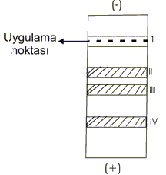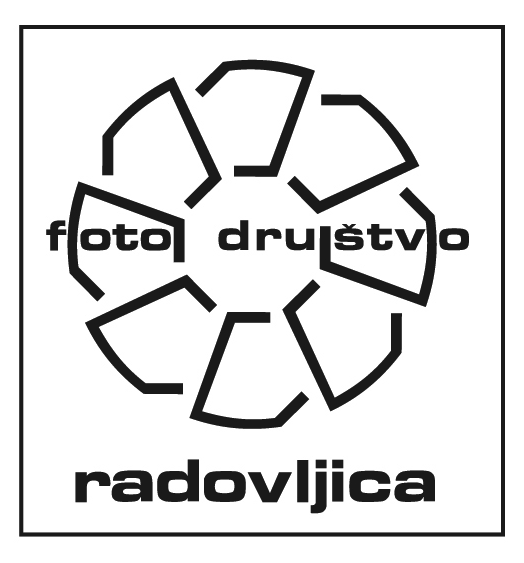A SCIENCE STRATEGY FOR SCOTLAND – ONE YEAR ON
BIOLOGY COMBINED SCIENCE GCSE (9–1) GATEWAYBIS SCIENCE AND SOCIETY COMMUNITY CHALLENGE GRANT SCHEME
CHARLES UNIVERSITY OF PRAGUE FACULTY OF SCIENCE
DEPARTMENT OF CROP AND SOIL SCIENCE RECRUITMENT INFORMATION
DEPARTMENT OF EDUCATION AND SCIENCE SUMMARY OF ALL
FACULTY OF ENGINEERING AND PHYSICAL SCIENCES TAUGHT
A Science Strategy for Scotland – One Year On
A Science Strategy for Scotland – One Year On
Professor Wilson Sibbett, Chair of the Scottish Science Advisory Committee (SSAC), was one of three speakers at the recent Foundation for Science and Technology Discussion Dinner held at The Royal Society of Edinburgh. The theme of the meeting, expertly chaired by Lord Jenkin of Roding, was A Science Strategy for Scotland.
Sir Muir Russell led the discussion by outlining the development of the Scottish Executive’s first comprehensive science strategy and highlighting the Executive’s quest to bring greater harmony to its use of funds for science. He went on to focus on a number of the Executive’s recent major achievements for science, including the creation of the SSAC. Sir Muir concluded by reiterating the Executive’s commitment to science and the need to optimise the benefits of Scottish science.
Professor Sibbett viewed A Science Strategy for Scotland as a starting point, from which the future direction of Scottish science could be mapped. The underpinning theme to his presentation was the need for Scotland to strive for genuine world-leading excellence in relation to science, engineering and technology. He thought that Scotland needed to improve and strengthen connections between key players, both within Scotland and elsewhere, to allow it to gear up its scientific activities to be truly competitive in a global context.
He further explained that one of the most challenging tasks for the SSAC was to define future science priorities for Scotland. He explained that the SSAC would look to identify those sectors where it believed that Scotland could make a major global impact. He asked whether Scotland had the courage to redirect its resources to selected priority areas where it could shine against international competition. A primary aim must be to ensure that Scotland is recognised as a nation of world-leading scientists and inventors who have the ability and resources to set the science agenda and to be genuinely leading the world in some areas of science and technology.
He admitted that this would not be easy and that to achieve this ambition Scotland would have to continue to attract the best people and infrastructure, whilst being brave enough to realise that there were areas it would have to leave behind as it looked to the future and focused on its strengths.
Professor Sibbett also highlighted the need to take an urgent look at science education in Scotland, from the primary school through to universities. He highlighted his concern at the year-on-year decrease in the proportion of students studying science and asked how Scotland could encourage its best students to appreciate the intellectual challenges and career opportunities that follow on from degree courses in science and engineering. Progress in this area is necessary to address the need for a future supply of skilled scientists and engineers that can build the science and technology base of a modern high-technology and knowledge-based economy.
Dr Chris Henshall, Group Director, Office of Science and Technology, reviewed the UK government’s investment in the science base from 1993, with the publication of Realising our Potential, to today and the recent publication of Investing in Innovation, which outlines the UK’s commitment to the science base from 2003-2006. Particular emphasis was given to the need to secure and maintain a dual support funding structure that enables research to take place within a well-founded infrastructure. Recovery of the full costs associated with carrying out research programmes in universities was highlighted in his presentation.
Following these three excellent and thought-provoking presentations, the audience participated in a lively discussion session, where a number of key issues were raised, including the need to focus on engineering and technology as well as science; the challenges of multi-disciplinarity and inter-disciplinarity in some cutting-edge research, the need to examine the routes to commercialising science and engineering; the need for government to resource science adequately and realistically and to recognise that science is at the foundation of any modern economy.
ReSourcE November 2002
ISTS 2002M01 MISSION AND SCIENCE OF MUNIN
NEBRASKA’S HEALTH SCIENCE CENTER OFFICE OF REGULATORY AFFAIRS
PGCE PRIMARY SCIENCE SPECIALIST PATHWAY 20182019
Tags: science strategy, that science, strategy, science, scotland
- DERECHO PENAL LABORAL ASIGNATURA OPTATIVA ANUAL CRÉDITOS 9
- ESCUELA DE MUSICA MUSIKA ESKOLA SOLICITUD DE ADMISION
- GUILLERMO ORTEGA ECONOMISTA UCV 1984 BECARIO FULLBRIGHT 19891993 ESTUDIOS
- MYLA 2021 REVISED 372019 ALL OFFICIALS MUST GO ONLINE
- LAMPIRAN SK DEKAN FAKULTAS KEGURUAN DAN ILMU PENDIDIKAN
- ACCESS OF A DRUNKEN PERSON TO 0416040 LICENSED PREMISES
- NAAM PRAKTIJK TITEL VAN PROTOCOL POLYFARMACIE LOGO VAN DE
- ESTUDIO DE MERCADO Y ANÁLISIS ECONOMICO DEL SECTOR (SUBSECCION
- ATEŞLİ SİLAH RUHSATI İÇİN BAŞVURAN KİŞİLERİN PSİKİYATRİK MUAYENE KILAVUZU
- TWO CHARGED IN DRUG BUST DOWN EAST BY DIANA
- MIEJSCE NA PIECZĘĆ LGD KARTA OCENY PROJEKTU WG LOKALNYCH
- 1 REFERENCIAS BIBLIOGRÁFICAS ACHENBACH T M (1991 A)
- CONTROLLED MEDICATION COUNT CONSUMER MEDICATION DOSE MONTHYEAR DATE
- IZVJEŠTAJ O RADU RAZREDNOG VIJEĆA IV RAZREDA ŠKOLSKE 201819
- 6 Karp Milicki w Sosie z Szyjkami Rakowymi i
- Draft Proposed Best Management Practices for Loko i`a Projects
- CIVICUS MEMBERSHIP APPLICATION FORM CIVICUS IS AN INTERNATIONAL ALLIANCE
- DDª DIRECTORA DEL DEPARTAMENTO DE DE LA FACULTAD
- 6 T RIGÉSIMO SEXTO PERÍODO ORDINARIO DE
- 16 HENRI WALLON PSICOLOGIA E EDUCAÇÃO IONE COLLADO PACHECO
- 6579 KONUT HESABI VE DEVLET KATKISINA DAİR YÖNETMELİK BAKANLAR
- PERMANENTE COMMISSIE INTERCOLLEGIALE TOETSING KAAKCHIRURGIE (PITK) VRAGENLIJST HOOFD POLIKLINIEK
- CASACIÓN NÚMERO 40712 FRAN ALBERTO SÁNCHEZ P CORTE SUPREMA
- APOCALIPSIS POR FAVOR DE GEORGE MONBIOT LA POLÍTICA DE
- GUÍA DE AUTOEMPLEO CUADRO DE AMORTIZACIONES CONCEPTO IMPORTE
- OBRAZEC ŠT 104 IZJAVA DELOVNEGA MENTORJA1 PRILOGA K VLOGI
- ID R25 INP VERSION 1 XX DE R25 INPUT
- EXPOSURE DRAFT EXPOSURE DRAFT INSOLVENCY PRACTICE RULES (CORPORATIONS) AMENDMENT
- RAJIV GANDHI UNIVERSITY OF HEALTH SCIENCES BENGALURU KARNATAKA ANNEXURE
- NA TEMELJU ČLANKA 30 STAVKA 4 ZAKONA O KOMUNALNOM
ETWINNING FAALIYETI BILGI NOTU ÖĞRETMENLERIN ETWINNING MESLEKI GELIŞIMLERI IÇIN
 VOCABULARIO EN LA CLASE DE ELE SS 2008 PS
VOCABULARIO EN LA CLASE DE ELE SS 2008 PS 1987 EYLÜL TEMEL TIP BİLİMLERİ TESTİ BİYOKİMYA 21AŞAĞIDAKILERDEN
1987 EYLÜL TEMEL TIP BİLİMLERİ TESTİ BİYOKİMYA 21AŞAĞIDAKILERDEN(12 CCR 25097) 76016 COUNTY RESPONSIBILITIES FOR CASE DOCUMENTATION
 LINEAR INTERPOLATION GRID POINT BETWEEN MBARM AND WRFCLM3 IS
LINEAR INTERPOLATION GRID POINT BETWEEN MBARM AND WRFCLM3 ISFALL 2021 CLASS SCHEDULE TIME MONDAY TUESDAY WEDNESDAY THURSDAY
 RAZPIS FOTOGRAFSKI NATEČAJ DOGODKI V OBČINI RADOVLJICA 202113 1
RAZPIS FOTOGRAFSKI NATEČAJ DOGODKI V OBČINI RADOVLJICA 202113 1 3 LABORATORI CATÀLEG DE PREUS 2011 C VOLTA DE
3 LABORATORI CATÀLEG DE PREUS 2011 C VOLTA DESACRAMENTO CITY UNIFIED SCHOOL DISTRICT EVALUATION PROGRAM SPECIALIST RECRUITMENT
 PRACTICE RESOURCE NEGOTIATING SUPPORT ARRANGEMENTS FOR APPROVED CARERS ELIGIBLE
PRACTICE RESOURCE NEGOTIATING SUPPORT ARRANGEMENTS FOR APPROVED CARERS ELIGIBLE3 ADVIESCOMMISSIE VOOR HET BURGERLIJK PROCESRECHT AAN ZIJNE EXCELLENTIE
P1119 SOLICITUD DE TRAMITACIÓN DE EXPEDIENTE DE EXPROPIACIÓN FORZOSA
LÆGE HJEMMEBLODTRYK NAVN CPRNR DATO – VED
 PENNSYLVANIA DERMATOLOGY PHYSICIAN ASSISTANTS (PDPA) CERTIFICATE OF ATTENDANCE THIS
PENNSYLVANIA DERMATOLOGY PHYSICIAN ASSISTANTS (PDPA) CERTIFICATE OF ATTENDANCE THISCORPORATIONS 1 CORPORATE INCOME IS ONLY TAXED ONCE –F
WYKAZ DZIAŁALNOŚCI KONTROLNEJ PROWADZONEJ PRZEZ WARMIŃSKOMAZURSKI URZĄD WOJEWÓDZKI W
 PRUEBA MATEMÁTICA ABRIL 2010 NOMBRE DEL PROFESOR FRANCISCO ARRATIA
PRUEBA MATEMÁTICA ABRIL 2010 NOMBRE DEL PROFESOR FRANCISCO ARRATIA SEMANA 9 Y 10 LÍMITES Y CONTINUIDAD EJEMPLO 1
SEMANA 9 Y 10 LÍMITES Y CONTINUIDAD EJEMPLO 1 RAM INTERNO VERSIÓN PARA EL CURSO 2020
RAM INTERNO VERSIÓN PARA EL CURSO 2020  1UVOD KRIZA JE IZPOSTAVILA PROBLEM VLAGATELJEV OSREDOTOČENIH NA
1UVOD KRIZA JE IZPOSTAVILA PROBLEM VLAGATELJEV OSREDOTOČENIH NA